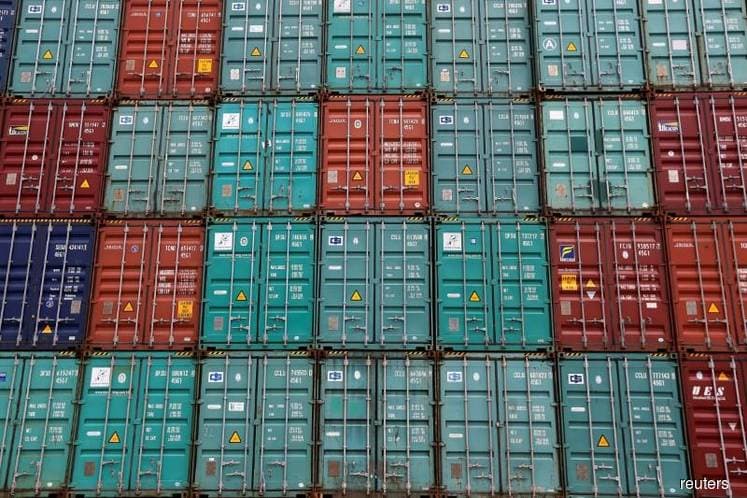
KUALA LUMPUR (June 4): While Malaysia recorded its first trade deficit in over 22 years in April and export demand is seen remaining weak in May, some economists see hopes of a modest rebound in trade activity over the coming months, as major and regional economies gradually reopen, alongside the restart of most Malaysian business sectors.
“The April trade deficit is expected to be temporary, partly weighed by a spike in lumpy capital imports that should recede in coming months,” UOB Malaysia senior economist Julia Goh wrote in a note today.
She added that the latest IHS Markit’s manufacturing PMI for Malaysia, which showed the index rising to 45.6 in May following a record low of 31.3 in April, portrayed signs of stabilisation, although the sector continues to contract.
“Commodity prices have also stabilised with Brent crude oil prices nearing its three-month high of US$39 per barrel and crude palm oil prices rising above RM2,400 per tonne.
"As restrictions under the Movement Control Order (MCO) are gradually lifted, we expect demand and supply conditions to resume. For now, we maintain our estimate for exports to decline 10% in 2020 [from a decline of 1.7% in 2019],” she said.
The trade deficit came after Malaysia’s exports in April contracted 23.8% year-on-year to RM64.9 billion — its steepest decline since September 2009 — outpacing the 8.8% y-o-y fall in imports to RM68.4 billion. The resultant RM3.5 billion deficit was the first monthly deficit recorded since October 1997 and the highest on record, data shows.
The fall in exports was led by a 23.4% decline in manufactured goods to RM55.5 billion, which represented 85.5% of total exports for the month. Meanwhile, imports' slower contraction was due to lumpy purchases of transport equipment, particularly floating structures pertaining to Petronas Floating Liquefied Natural Gas–2 project.
In a separate note, CGS-CIMB economist Michelle Chia said April’s trade performance likely marked the trough for trade activity, as businesses resumed their operations in May, following a partial relaxation in MCO in conjunction with the decline in Covid-19 cases in Malaysia.
She also noted that Malaysia’s manufacturing PMI figure in May was the strongest rebound from April, in the Asean region.
“Nevertheless, we think that economic activity should recover only gradually to optimal operating capacity, with social distancing measures in place to prevent a second wave of Covid-19 infections. We retain our gross domestic product (GDP) forecast of -4.3% for 2020, and expect Bank Negara Malaysia (BNM) to cut the Overnight Policy Rate (OPR) further by 25 basis points to 1.75% in the second half of 2020,” Chia said.
The global downturn, however, posts uncertainties on Malaysian exports, which rely on other countries' domestic demand. Hence, some quarters view it might be too early to conclude that the trade deficit was just a near term event that arose from the MCO.
“Impact of Covid-19 has emerged as the top risk to global trade flows, as it affects both supply and demand of goods. This includes Malaysia, particularly with almost two months of MCO which disrupts productions and eventually exports.
"China’s latest external trade performances showed some improvement. However, the sustainability of it remains questionable at large. In addition, the re-escalation of US-China tension poses more threat to foreign trades. This will hinder most of the countries’ efforts to restart their respective economies, amid (the) Covid-19 pandemic,” said MIDF Research in another report.
MIDF, which is anticipating a weaker trade performance for the second quarter of the year, reiterated that it expects exports growth to contract further in 2020 — at 8.3% y-o-y — compared with a decline of 1.7% y-o-y in 2019.
Read also:
Malaysia slips into record deficit in April after 22 years of trade surplus
Malaysia April exports plunge 23.8%, largest y-o-y drop since September 2009
Stay home. Get the news from theedgemarkets.com.